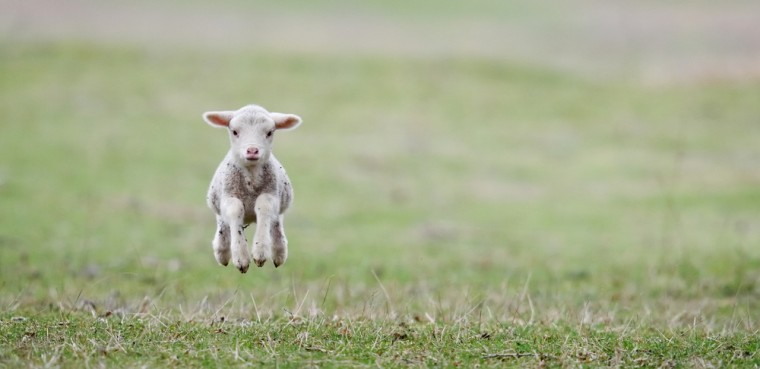Getting backfat levels right takes careful management in both ewes and suckler cows, however if management is spot-on between now and parturition, it can make a real difference to newborn health and early vigour.
UK livestock nutrition specialists, Harbro Ltd, are advising farmers to review their livestock nutrition in the weeks before parturition to ensure positive long-term effects on the health, performance and efficiency of their offspring.
Harbro’s technical director Willie Thomson recommends focusing on the three ‘Qs’ of colostrum management – Quick, Quality and Quantity – to ensure the high immunity of new lambs and calves.
“It is essential to give newborn’s the best possible start, and by concentrating on these key areas, it can make all the difference to both parturition and the vitality of newly born animals. The quality and quantity of colostrum is directly influenced by nutrition, which can be managed, and if the delivery is easy and the offspring healthy, it can suckle quickly which again gives it a much better chance of healthy growth and good performance.”
Colostrum quality relies on a healthy mother with an active immune system and adequate protein quality in the diet. Whilst it is now common practice to feed high quality protein, such as soya, to ewes in the weeks prior to lambing, Harbro’s advice is the same for suckler cows. The quantity of colostrum is also directly linked to nutrition. Energy and protein status pre-parturition drive colostrum and milk production, but the health and body condition of the mother must be considered. Mr Thomson advises:
“Low body condition will compromise output, but overfat cows and ewes will also create a great challenge. A particular threat in ewes comes from twin lamb disease, especially in mild winters where little supplementary feed is required or offered. In these situations, it is important to maintain the supply of quality protein and trace elements to balance the energy in backfat.”
Supplementing extra calcium and magnesium in the mother in the week or so before calving or lambing can make a significant difference to parturition. Mr Thomson explains: “Both minerals are essential for muscle contractions involved in the birth process and subsequent cleansing, and easy parturition stands the newborn in good stead. The quicker the young animal consumes colostrum, the greater its chance to gain vital immunity. The gut pathway allowing the direct absorption of antibodies shuts down within a matter of hours, so the young animal needs to stand and suckle within 12 hours and ideally within three hours for best results.”
Iodine levels are also essential as when passed on from the mother it enables the young animal to convert ‘brown fat’ into an immediate source of energy. ‘Slow calves’ are a classic symptom of iodine deficiency. However, although iodine supplements can be beneficial in these cases, Mr Thomson urges caution as excess levels in the blood have been associated with reduced uptake of immunoglobulins from colostrum.
Reviewing nutrition pre-calving or lambing is recommended to ensure immunity is maximised. This can be done by asking a vet to take blood tests to check protein or immunoglobulin levels in the first week after birth. “Checking the first few is a great opportunity to take action if necessary before the rest calve or lamb,” says Mr Thomson.




